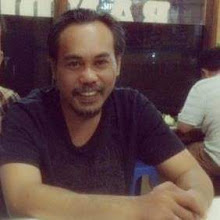Bamboo Village
Related Posts
People tend to have this assumption that luxury is all about air-conditioning and technology, about owning a big car — but luxury can also be about feeling the wind blow right through your house, being in contact with nature and walking around barefoot in your home.
Effan Adhiwira, a 28-year-old Indonesian who is senior architect and also oversees construction at Green School, the Ibuku team is creating a collection of structures that look more like treehouses and pirate ships than luxury villas.
Three dozen buildings will ultimately form the “Green Village,” which is going up on three hectares, or almost 7.5 acres, of land. One has been completed, and its owner is moving in next week. A second is expected to be finished in a few weeks and several more in the next few months. Five homes have been sold already and the sales of at least four more are being negotiated.
Each one boggles the mind, pleasantly, doing things with bamboo that you would never think bamboo could do.
Indonesia as a whole, and Bali in particular, has become increasingly popular with foreign investors, drawn by the country’s friendly climate and buoyant economy. Foreigners cannot own land or houses directly in their own name in the country but it is possible, and common, for them to arrange ownership through local nominees or surrogates. Another option is to acquire long-term leases of as long as 25 years, which can be transferable and extendable, and are thus an attractive alternative, Mr. Wrathall said.
Possibly the most unusual aspect of the Ibuku houses — apart from the fact that they are 98 percent bamboo — is that their sides are largely open to the elements.
Beneath the canopy-like roofs, which are in turn overshadowed by the jungle, there are only floors and the bamboo support pillars. The houses have 150 to 300 square meters, or 1,615 to 3,230 square feet, of living space, but no walls, no windows.
That may sound unbearably hot and steamy, but there generally is a gentle breeze blowing through the structures.
Buyers can opt to have parts of their houses enclosed — with bamboo walls — so the areas can be cooled and dehumidified. But most areas are free of energy-guzzling air-conditioning and costly insulation materials. Ibuku also plans to take the whole “village” off Bali’s electric grid, providing power from biomass, the energy given off by decaying natural materials — all in line with the green, environmentalist philosophy that pervades the development.
Effan Adhiwira, a 28-year-old Indonesian who is senior architect and also oversees construction at Green School, the Ibuku team is creating a collection of structures that look more like treehouses and pirate ships than luxury villas.
Three dozen buildings will ultimately form the “Green Village,” which is going up on three hectares, or almost 7.5 acres, of land. One has been completed, and its owner is moving in next week. A second is expected to be finished in a few weeks and several more in the next few months. Five homes have been sold already and the sales of at least four more are being negotiated.
Each one boggles the mind, pleasantly, doing things with bamboo that you would never think bamboo could do.
Indonesia as a whole, and Bali in particular, has become increasingly popular with foreign investors, drawn by the country’s friendly climate and buoyant economy. Foreigners cannot own land or houses directly in their own name in the country but it is possible, and common, for them to arrange ownership through local nominees or surrogates. Another option is to acquire long-term leases of as long as 25 years, which can be transferable and extendable, and are thus an attractive alternative, Mr. Wrathall said.
Possibly the most unusual aspect of the Ibuku houses — apart from the fact that they are 98 percent bamboo — is that their sides are largely open to the elements.
Beneath the canopy-like roofs, which are in turn overshadowed by the jungle, there are only floors and the bamboo support pillars. The houses have 150 to 300 square meters, or 1,615 to 3,230 square feet, of living space, but no walls, no windows.
That may sound unbearably hot and steamy, but there generally is a gentle breeze blowing through the structures.
Buyers can opt to have parts of their houses enclosed — with bamboo walls — so the areas can be cooled and dehumidified. But most areas are free of energy-guzzling air-conditioning and costly insulation materials. Ibuku also plans to take the whole “village” off Bali’s electric grid, providing power from biomass, the energy given off by decaying natural materials — all in line with the green, environmentalist philosophy that pervades the development.










No comments: